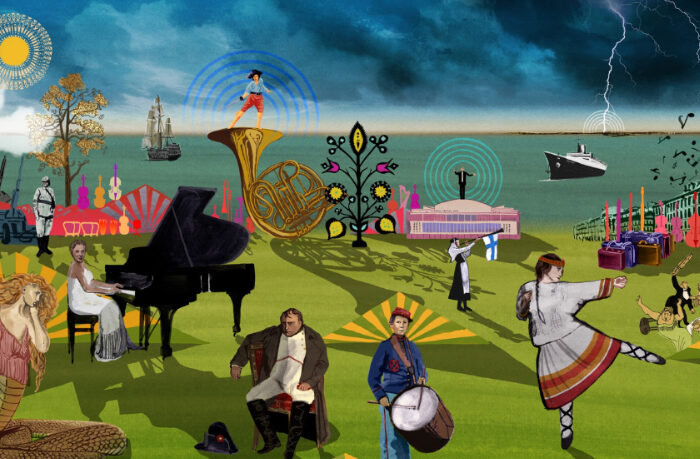
Be An Arts Hero Seeking Emergency $43.85 Billion in Relief for Arts & Culture from U.S. Senate
By Chris RuelWith the Arts and Culture sector’s 5.1 million Americans out of work, BeAnArtsHero.com, an intersectional grass-roots campaign to provide proportionate relief to the sector, has sent an open letter to the U.S. Senate calling on the body to pass $43.85 billion in direct relief to artists and arts institutions.
The request calls for with a fair amount of that aid to be allocated for marginalized communities that are disproportionally impacted by unemployment — this includes those who are BIPOC, LGBT+, and disabled. The sector adds $877 billion in value to the United States’ economy annually, providing 4.5 percent of the nation’s gross domestic product, according to a press release by Be An Arts Hero.
To date, the letter has gained nearly 10,000 signatures.
The $43.85 billion figure is proportionate to the $50 billion dollars allocated toward relief of the country’s ten biggest airlines. The money for the Arts and Culture relief would be funded by a portion of $120 billion dollars from the CAREs Act. Though approved, the funds have yet to be allocated. Tapping into that pool of money enables the Senate to pay for the sector’s relief without spending additional dollars.
The 3.1 million fully unemployed arts workers equal 10 percent of the total 30 million total unemployed. A staggering 41 percent of arts and culture institutions report a lack of confidence in their ability to survive the pandemic, while 90 percent of music venues believe they face closing without relief, according to the Be An Arts Hero’s press release,
Be An Arts Hero has positioned its ask of the Senate as a bolster for the entire U.S. economy. According to data collected by the National Endowment for the Arts, the sector outperforms the growth of the entire country’s economy by almost two-fold. Be An Arts Hero argues that if the U.S. government is serious about the recovery of the economy, then the Arts and Culture sector is not a luxury, but the key to a return to growth after the worst recession since the Great Depression.
The sector is showing solidarity around the letter as prominent culture institutions add their names alongside celebrity signees such as Rosario Dawson, Laura Linney, Kevin Kline, and Glenn Close. Culture institutions who have signed include Carnegie Arts Center, The Santa Fe Symphony Orchestra, Roundabout Theatre Company, and The Nashville Ballet. In addition, thousands of arts workers represented by dozens of unions have attached their names to the letter.
“We are over 675,000 small businesses and organizations in every town, city, and state, employing 5.1 million hard-working Americans who are now desperately struggling to stay above water. Our influence reaches across every sector because the Arts Economy is a jobs multiplier, creating millions of sustainable jobs in collateral arts-adjacent economies. Our very humanity—and the Humanities—teeter at the edge of a fiscal and existential cliff. If we fall, so does the identity of America itself, for we are the very expression of this nation. And right now, we are crying out for your action,” actor and playwright Matthew-Lee Erlbach stated in the letter he authored.
To read and sign the letter, visit beanartshero.com/dear-senators.
The open letter calls for:
- Immediate extension of the Federal Pandemic Unemployment Compensation program (FPUC) until the crisis is over and Arts & Culture institutions are safe to re-open fully.
- 100% subsidy for the COBRA program to protect workers’ healthcare; eligibility extended to 36 months.
- $43.85 Billion committed to direct relief to Artists, their Institutions, their Unions, and all others who comprise the Arts & Culture economic ecosystem.
- Relief should be administered by the National Endowment for the Arts, National Endowment for the Humanities, Institute of Museum and Library Services, Small Business Administration, and Corporation for Public Broadcasting — entities best equipped with the infrastructure to disburse funds quickly and directly.
- Guarantee that a fair percentage of relief be apportioned in direct grants and relief to individual Artists and small Arts organizations representing the under-represented, oppressed, and marginalized communities in our country, specifically toward those who are BIPOC, LGBTQ+, disabled, and economically disadvantaged.
- Allow all nonprofits fair access to government economic support in the Paycheck Protection Program, including labor unions.
- A portion of funding should be distributed through the Small Business Administration to provide forgivable loans to small businesses with a track record of being involved in the arts and culture sector that can prove financial hardship as a result of the COVID-19 pandemic.
- Update the Qualified Performing Artist tax deduction, allowing creative professionals to keep more of their hard-earned money by deducting necessary business expenses from their taxes.
- Follow the lead of the U.K. and Germany and commit billions of dollars in direct relief to Artists, their Institutions, et al.
Categories
News


